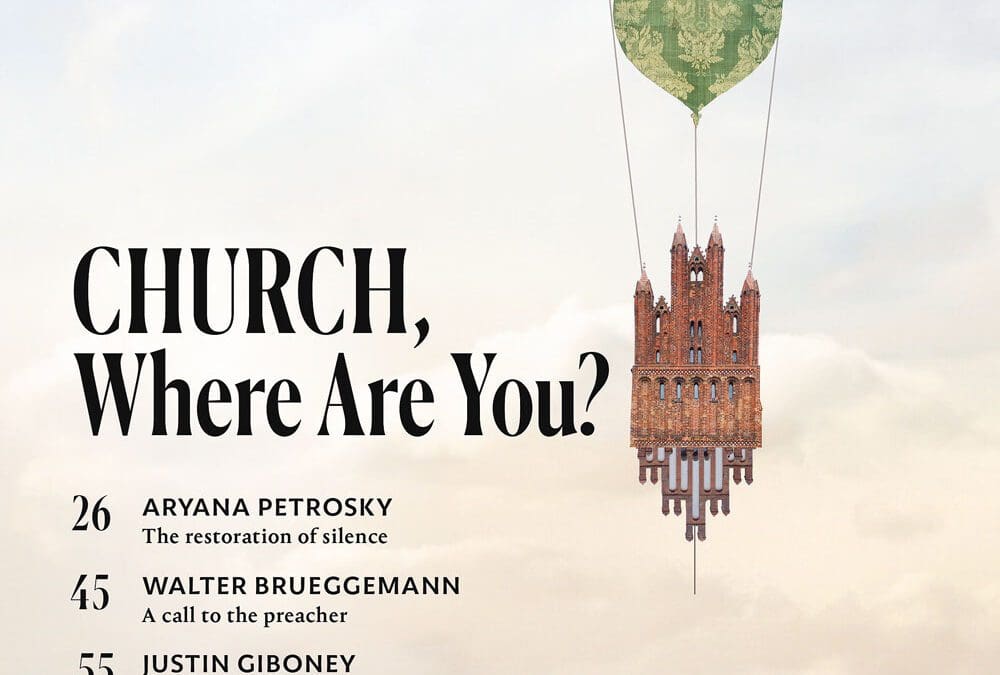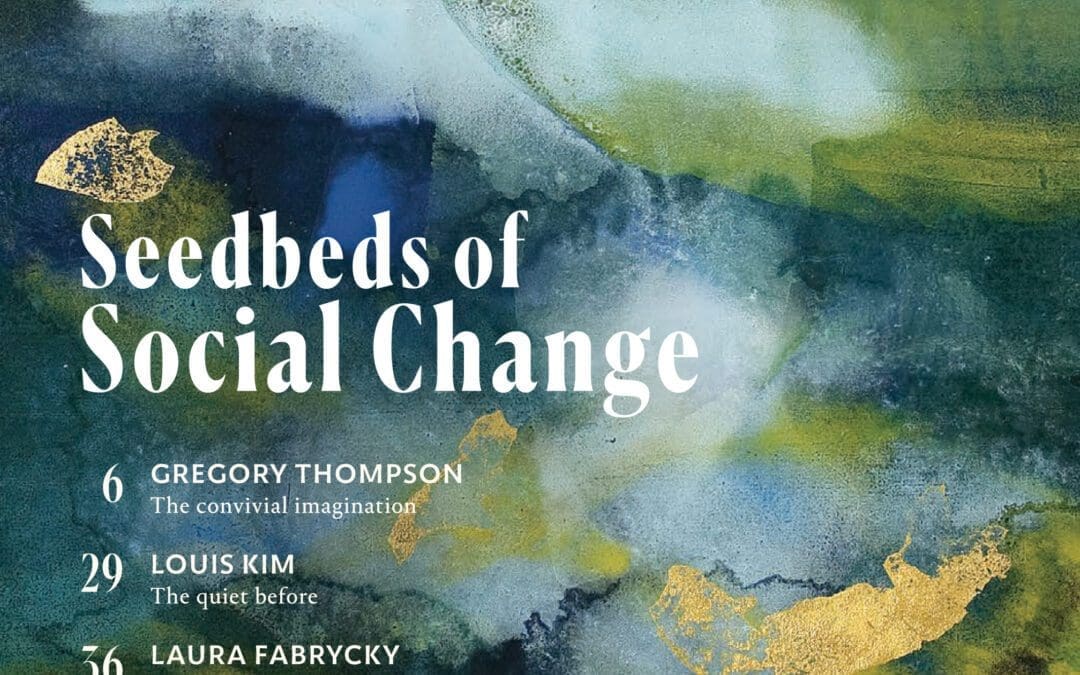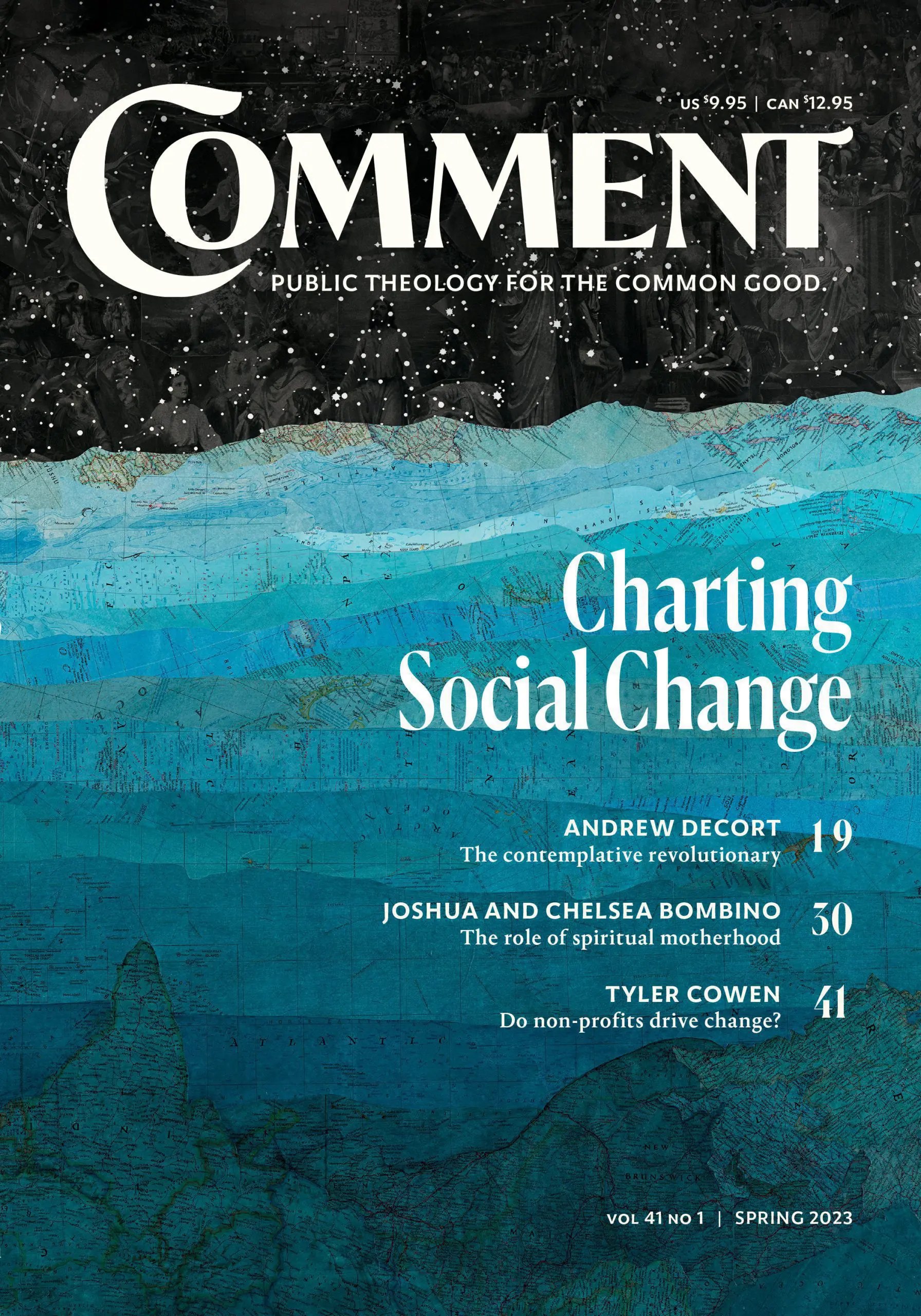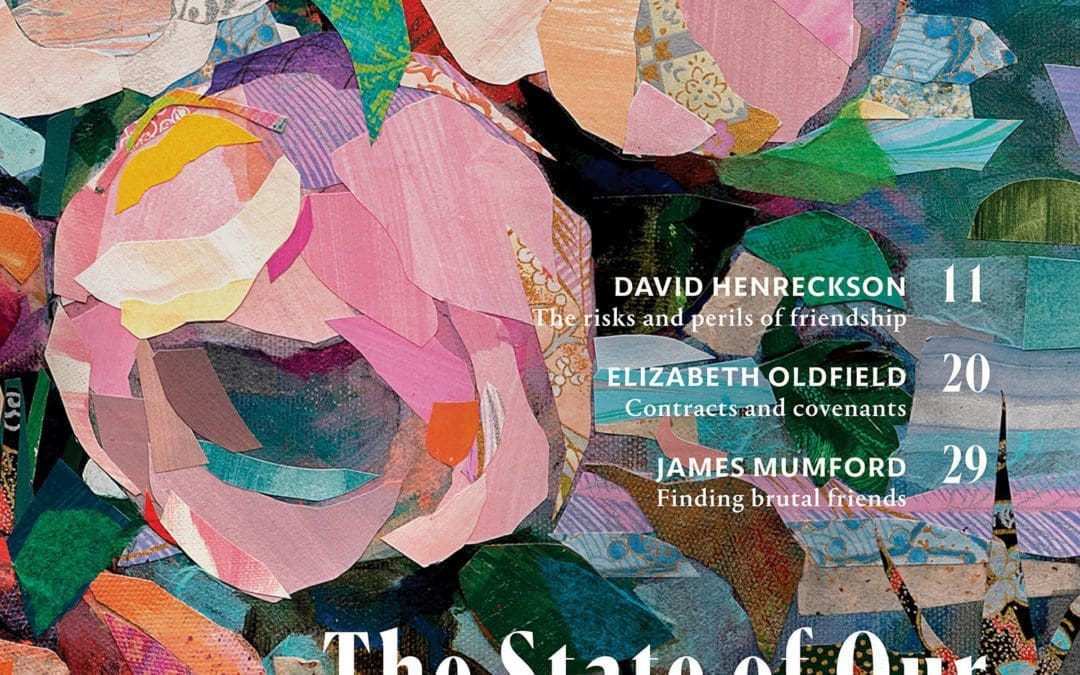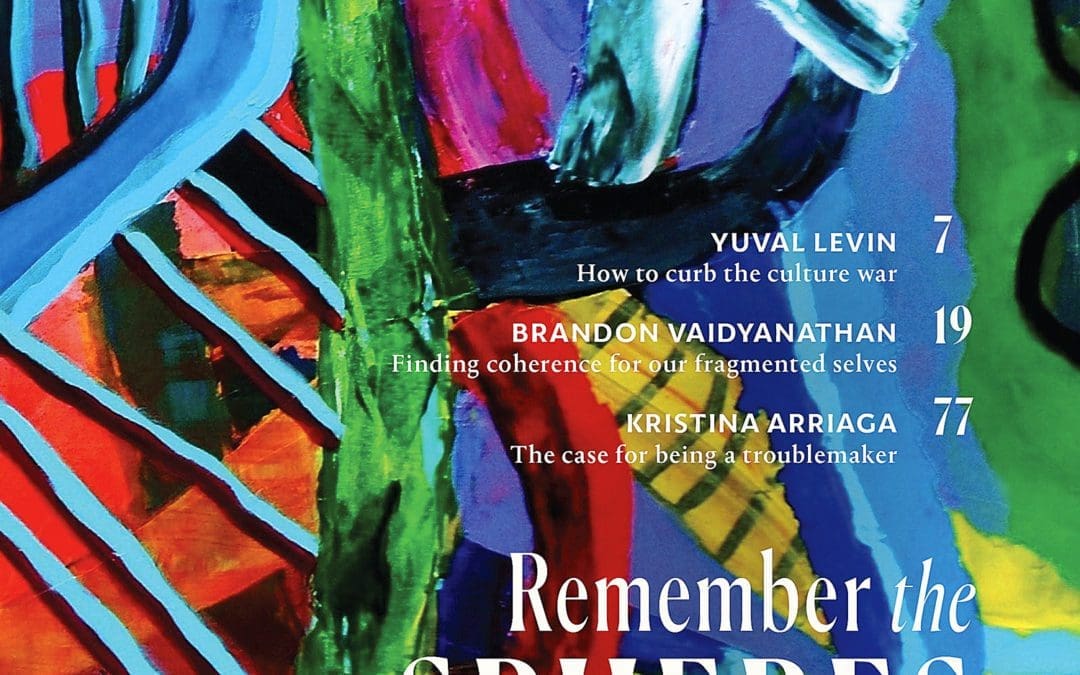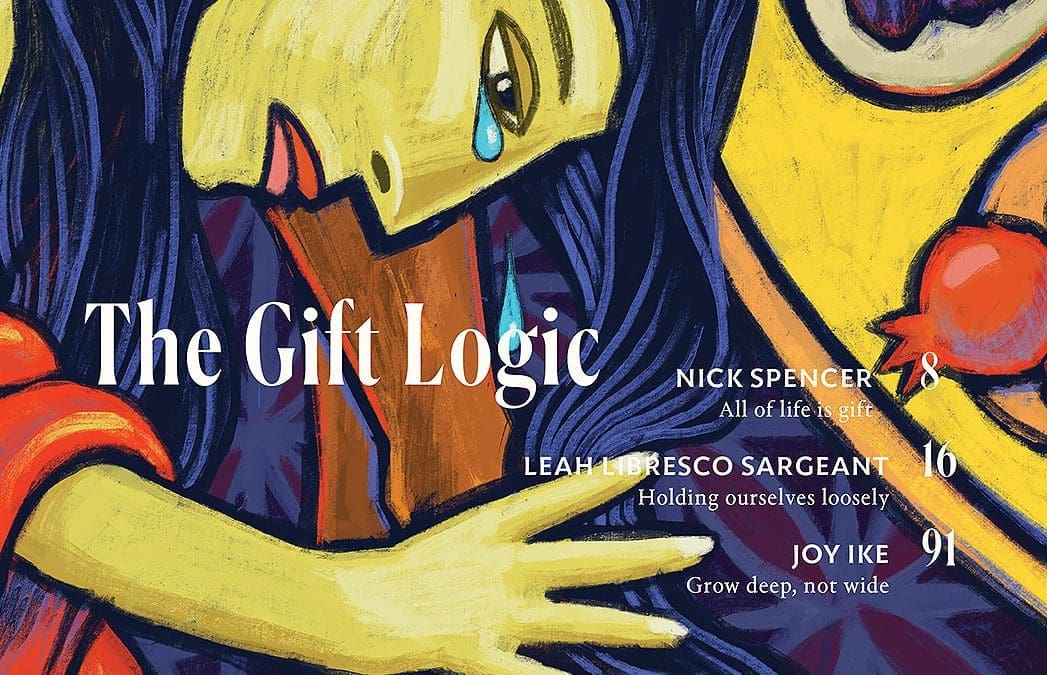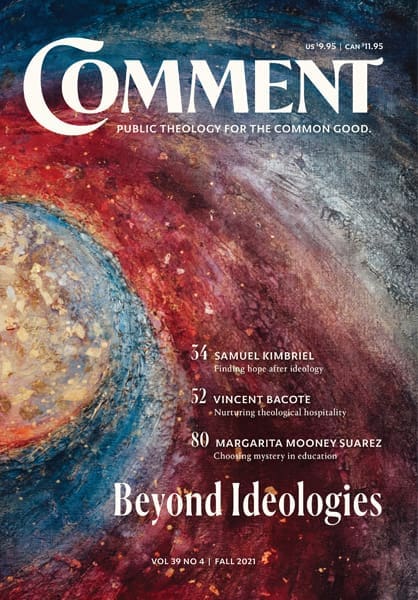Purchase a single copy of our spring 2024 issue. Is it possible for peace to walk in power anymore? This is the question of this issue. An exploding Middle East, a West on tenterhooks, many of us are holding our breath. Humans properly fear violence, all forms of it....
DIGITAL
$14
USD
Get unlimited online access.
- Early access to new issues
- Unlimited access to our entire archive
- Bookmark articles to your account
- Listen to select long-form articles
- Save your reading location
SUBSCRIBER
$24
USD
Get unlimited online access + 4 print issues per year.
- Receive our quarterly print magazine
- Early access to new issues
- Unlimited access to our entire archive
- Bookmark articles to your account
- Listen to select long-form articles
- Save your reading location
COMMENT PATRON
$500
USD/CAD
Support the people who make Comment possible.
- A full charitable tax receipt
- A complimentary Comment subscription
- Special updates from Anne Snyder
- Access to quarterly issue webinars
- Invitations to in-person Comment events
- Access to bonus podcast content
- Early access to new issues
- Unlimited access to our entire archive
- Listen to select long-form articles

